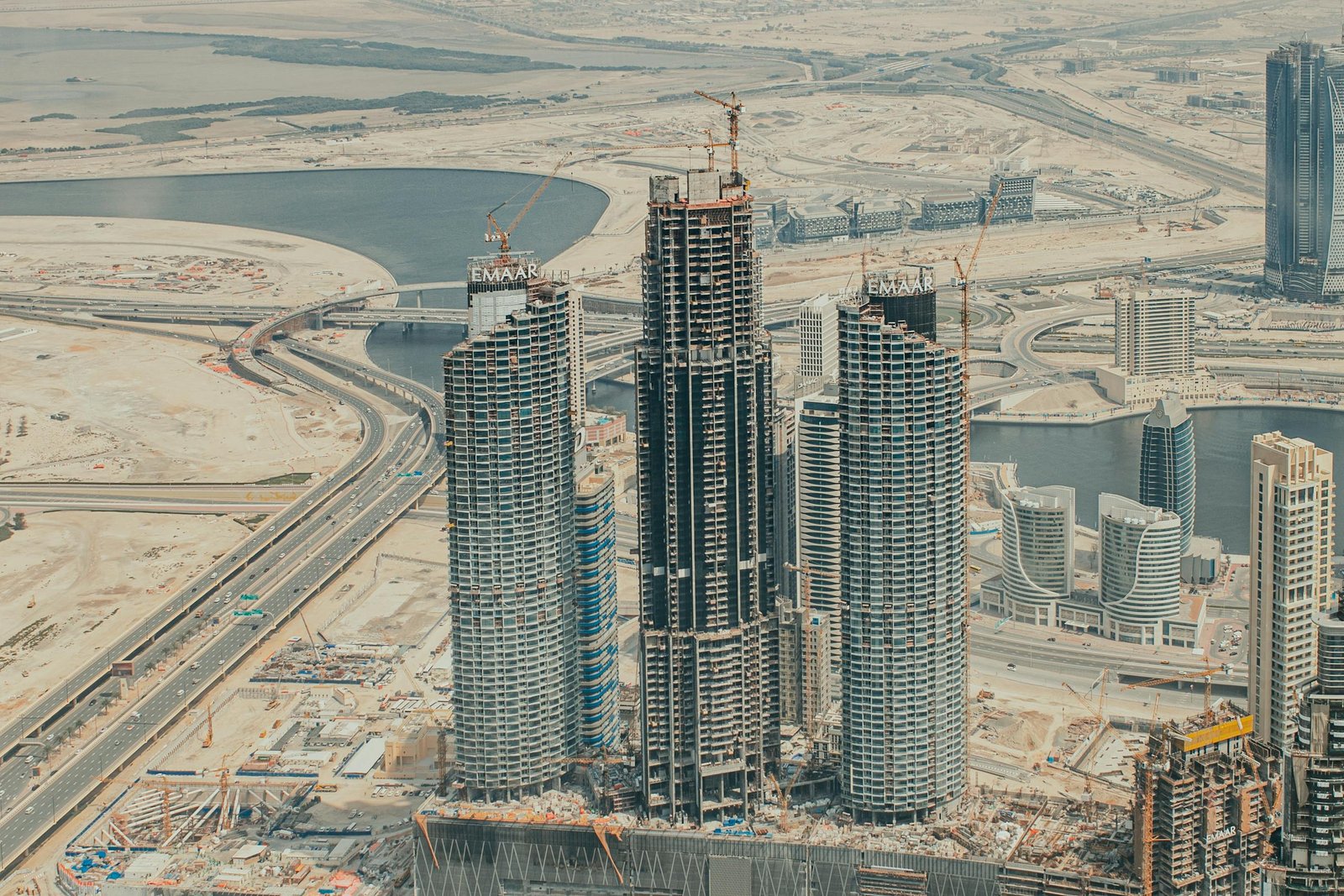
The UAE real estate market, particularly in Dubai, has demonstrated resilience and dynamic growth over recent years. The market outlook for 2024 to 2026 continues to show promise, supported by strong economic fundamentals, government initiatives, and sustained demand, especially in prime locations. However, challenges such as affordability and supply constraints remain. This article provides a comprehensive analysis of rental and sales price trends, economic factors, and expert insights to forecast the future of the UAE real estate market.
Current Market Performance
Dubai’s real estate market has experienced significant growth. In 2023, residential property prices surged, with some areas witnessing increases of up to 35.6%. Prime locations like Palm Jumeirah and Emirates Hills have seen substantial capital appreciation, driven by high demand and limited supply (MordorIntelligence). Rental prices have also increased significantly, with new contracts rising by over 30% in some prime areas (CBRE) (AGBI) (Media-Report).
Rental Price Trends
Moderation Expected: The rapid increase in rental prices is expected to moderate from 2024 onwards. The market will likely see a slower rate of rental growth due to the increased supply of new housing units and a more balanced demand-supply dynamic
Sustained Demand in Prime Areas: Despite the expected moderation, prime areas such as Palm Jumeirah, Emirates Hills, and Dubai Hills Estate will continue to experience high demand, maintaining elevated rental prices. The forecast suggests a continued but moderate increase in rental rates, driven by strong demand and limited new supply in these regions
Sales Price Trends
Continued Upward Trend: Sales prices are projected to continue their upward trajectory, though at a slower pace compared to recent years. From 2024 to 2026, property prices in Dubai are expected to increase by approximately 10-15% annually (MordorIntelligence) (CBRE) . This growth is supported by robust economic fundamentals, ongoing infrastructure projects, and sustained foreign investment.
Affordable Housing Initiatives: There is a growing focus on developing affordable housing to cater to the middle class, which has been increasingly priced out of traditional middle-class areas. Government initiatives and public-private partnerships are expected to support this segment, potentially stabilizing prices in these areas
Economic and Market Factors
Economic Growth: The UAE’s GDP growth is expected to remain positive, driven by the non-hydrocarbon sector. Despite global economic headwinds and challenges in the hydrocarbon sector, the overall economic outlook for the UAE remains robust, supporting the real estate market.
Government Policies: Policies such as long-term visas, reduction of transaction fees, and other investor-friendly measures continue to attract foreign investment. These policies are expected to sustain market growth and maintain investor confidence
Supply and Demand Dynamics: The balance between new housing supply and demand will be crucial. While new developments will help meet demand, prime locations will continue to experience high demand and limited supply, maintaining upward pressure on prices in these areas
Expert Insights
Moderate Growth Expected: According to Maurice Gravier from Emirates NBD and Julien Lafargue from Barclays Private Bank, the market is “running hot,” but there are no immediate signs of a bubble. They emphasize that the current growth is driven by solid demand and controlled leverage, differentiating it from the conditions that led to the 2008 crash (AGBI)
Potential for Affordability Issues: As rental and sales prices continue to rise, affordability becomes a concern. Many middle-class residents find it increasingly challenging to buy or rent properties in traditional middle-class areas. Government initiatives focused on affordable housing are crucial to address this issue.
Long-Term Outlook
The UAE real estate market is set for continued growth up to 2026, with moderated but positive trends in both rental and sales prices. The focus on affordable housing and government initiatives will be key in ensuring that the middle class can still access quality housing options. The overall outlook remains optimistic, supported by economic stability and strategic investments.
Rental Market: Rental prices are expected to stabilize, offering some relief to tenants. However, prime areas will continue to see higher rental rates due to sustained demand and limited supply
Sales Market: Sales prices will continue to rise, driven by economic growth, infrastructure projects, and foreign investment. The market will likely see a shift towards more affordable housing options, supported by government initiatives and public-private partnerships.
Economic and Policy Support: Strong economic growth, particularly in the non-hydrocarbon sector, and investor-friendly policies will continue to support the real estate market. The government’s focus on attracting foreign investment and developing infrastructure projects will also contribute to market growth.
Conclusion
The UAE real estate market is poised for continued growth up to 2026. While the rapid price increases of recent years are expected to moderate, the market remains robust, particularly in prime and luxury segments. Rental prices will stabilize, providing some relief to tenants, while sales prices will continue their gradual ascent. The focus on affordable housing will be critical in ensuring that the middle class can still access quality housing options.
For a detailed analysis and further insights, consulting comprehensive reports from sources like CBRE, Knight Frank, and Media-Report is recommended. The overall outlook remains positive, supported by strong economic fundamentals, government initiatives, and sustained demand.


